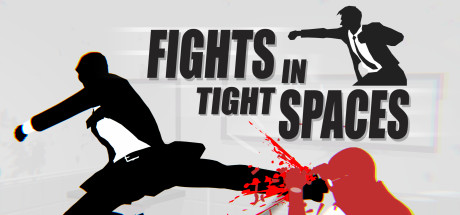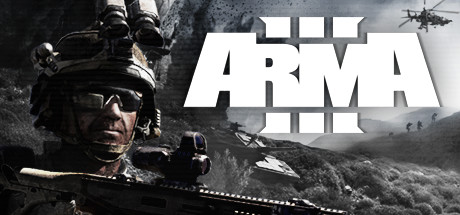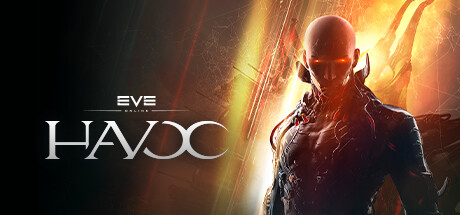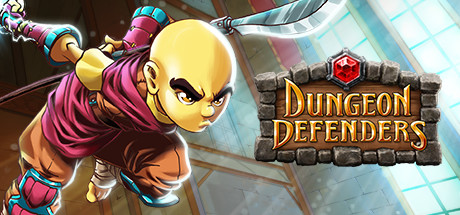
115
Players in Game
3 020 😀
285 😒
87,77%
Rating
$24.99
Fights in Tight Spaces Reviews
A stylish blend of deck-building, turn-based tactics, and thrilling animated fight sequences in classic action-movie settings. Learn to balance your hand, momentum, and positioning to overcome the odds to defeat your adversaries. Build your deck, control the space and live to fight another day.
| App ID | 1265820 |
| App Type | GAME |
| Developers | Ground Shatter |
| Publishers | Mode 7 |
| Categories | Single-player, Steam Achievements, Full controller support |
| Genres | Strategy, Action |
| Release Date | 2 Dec, 2021 |
| Platforms | Windows |
| Supported Languages | English, French, German, Spanish - Spain, Simplified Chinese, Japanese, Russian |

3 305 Total Reviews
3 020 Positive Reviews
285 Negative Reviews
Very Positive Score
Fights in Tight Spaces has garnered a total of 3 305 reviews, with 3 020 positive reviews and 285 negative reviews, resulting in a ‘Very Positive’ overall score.
Reviews Chart
Chart above illustrates the trend of feedback for Fights in Tight Spaces over time, showcasing the dynamic changes in player opinions as new updates and features have been introduced. This visual representation helps to understand the game's reception and how it has evolved.
Recent Steam Reviews
This section displays the 10 most recent Steam reviews for the game, showcasing a mix of player experiences and sentiments. Each review summary includes the total playtime along with the number of thumbs-up and thumbs-down reactions, clearly indicating the community's feedback
Playtime:
2509 minutes
I wish I could make my own fully customized starter decks without needing draft mode to randomize it. But the game is very fun and satisfying to play. It's hard too it took me 40 hours to beat the campaign.
👍 : 0 |
😃 : 0
Positive
Playtime:
17564 minutes
Keeps me coming back for more it's simple design and numerous strategies make this my go to game when I want to unwind. I hope the designers come back to this and expand on it a bit more.
👍 : 0 |
😃 : 0
Positive
Playtime:
1560 minutes
A very fun, addictive ("just one more fight"; "just one more run") and stylish deck-builder fighting game. While I like the sequel (Knights in Tight Spaces) with its improvements, somehow the minimalistic art style and spy-agent theme of the original works even better. The game does a very good job of making you feel smart for solving the positioning and attacking puzzle at the core of its systems, and when it all clicks together, and you get a really good sequence, it's superb. The (so far, only) DLC for FiTS adds a fun gunslinger style deck (think John Wick) and a longer, harder campaign, but it re-uses the levels and most assets of the original campaign; get it if you like the base game enough and want more content. Advice for new players: find a few good cards, and keep your deck lean. The remove card option is your friend. I did manage to get the achievement for beating the game with 50+ cards in the deck, but it was far easier to finish a run with a nice, lean deck.
👍 : 0 |
😃 : 0
Positive
Playtime:
861 minutes
To quote a much smarter person: [b] "If the violence doesn't solve all of your problems, you're using the wrong amount of it." [/b]
Which accurately sums up the game.
Fun, but sometimes the defeated combatants glitch when you rotate the camera.
👍 : 0 |
😃 : 0
Positive
Playtime:
883 minutes
Tons of fun with Martial Art action and crazy fight seems with some goofy ahh plays from the enemies sometimes.
Recommended for strategists, turn-based game players, and people who like "Kung-Fu / Karate" games.
👍 : 0 |
😃 : 0
Positive
Playtime:
390 minutes
Simple but loads of fun. Minimalist aesthetic is very cool. Feels like Ong Bak: Muay Thai Warrior. Addictive and accessible!
👍 : 0 |
😃 : 0
Positive
Playtime:
1214 minutes
This game is no joke. It looks simple on the surface but it has depth like nobody's business. I play on Purist difficulty because it feels like the best and fairest, and I always underestimate the situation and end up getting my ass kicked. Granted the UI has some room for improvement. The monochrome elements should be kept to the level and not spill into the UI. I don't like the fonts, I don't much like the use of shapes in the UI either, but those are personal preference, and does not impact the quality of the game.
Also I can't stop myself from trying to pan the camera. Can't zoom in, can't zoom out, wish I could pan the camera, because with just the fixed x/y rotation I struggle with the cards etc. especially in certain levels that has a lot of obstacles, where I find it hard to see the angles clearly. Either have the camera pannable or sliders for the card size. I just want to be able to see the level with fewer obstructions.
Also the femme Agent 11 is very sexy. Imagine Rhea Rhipley in a tuxedo 😳🤤
👍 : 0 |
😃 : 0
Positive
Playtime:
491 minutes
Man, I expected and wanted to love this game. The concept, aesthetic, and pitch are 1000% up my alley and I was so excited when I saw it and started to play. As a fan of deckbuilders / card games and a huge fan of tactics games, and having greatly enjoyed the rare occasion when I've found the two cross over, this seemed perfect for me.
Unfortunately, I don't think Fights in Tight Spaces hits the execution to a really fun game experience. I gave it more tries than I usually would because I [i]wanted[/i] to love this game so badly, but the game design feels clunky and ultimately not fun to play. I feel that FiTS has serious game balance issues, problems with its pacing which feels very sluggish, and very poor and unattractive UI. Fights take longer than they should, runs take way longer than they should, and progression is at a snail's pace. I had runs where I was immediately overpowered and all the fights were trivial exercises of almost never taking a hit, and others where I was immediately ground to dust by useless unplayable hands. Luck feels far too relevant with FiTS, but whether luck is in my favor or not, fights are extremely repetitive, slow, and drawn-out. The game fundamentally doesn't respect my time, which is in short supply as a normal adult with a full-time job, wife, and kids. FiTS could use a stark lesson in awesome per second, and needs a general sheen of polish while it's at it.
The game has a good amount of content, but it's needlessly stretched out which cheapens its own quality. It feels half-baked and unfinished, despite the feature set, like a first or second draft of the card balance and pacing, with first draft UI and a big lack of polish and game feel. FiTS ultimately left me very frustrated, bored, and disappointed, which really sucks. Feels like a big waste of my time, money, and hopes at the awesome concept and aesthetic.
👍 : 0 |
😃 : 0
Negative
Playtime:
2883 minutes
this game is absurdly infuriating to me. and yet I cannot stop playing it.
👍 : 1 |
😃 : 0
Positive
Playtime:
1408 minutes
Fights in Tight Spaces is a masterfully crafted blend of tactical turn-based combat and deck-building strategy that offers a uniquely cinematic twist on the roguelike genre. Set in confined, minimalist environments, the game casts you as a black-suited operative—Agent 11—tasked with dismantling various criminal organizations through a series of hyper-stylized, close-quarters battles. Rather than relying on real-time reflexes, each encounter plays out like a turn-based chess match, where movement, positioning, and card selection are crucial to survival. The game’s brilliance lies in how it turns brutal combat into a carefully orchestrated dance of timing, strategy, and spatial awareness.
At its core, the game takes place on small, grid-based arenas, each representing a “tight space” like a cramped elevator, narrow alleyway, or subway car. Enemies approach from all sides, and each turn you’re given a hand of randomly drawn cards that represent actions—kicks, punches, grapples, blocks, and more elaborate maneuvers like vaults and wall-kicks. Every card requires careful thought: it costs momentum to play and must be executed with precision based on your position and the proximity of your enemies. What makes the gameplay so compelling is how elegantly it turns every move into a meaningful decision. You can’t just attack—you have to think several steps ahead, predicting enemy behavior, repositioning tactically, and sometimes even using enemies against one another by pushing them into danger zones or oncoming fire.
Progression is centered around the deck-building system. You start with a basic set of cards, but over time, as you complete missions and make choices on the branching path of the campaign, you earn new cards, upgrades, and resources. These can be used to build a deck that suits your preferred combat style. You might lean into agility-based tactics with evasive maneuvers and light strikes, or build a brute-force deck focused on high-damage throws and counters. The game offers well over 200 cards, allowing for deep customization. There’s also a system of card upgrades and character perks that offer passive boosts, adding another layer of tactical planning. This synergy between deck construction and positional gameplay makes every run feel fresh and rewarding.
Visually, the game adopts a clean, stylized aesthetic that serves the gameplay perfectly. The environments are primarily rendered in stark black and white, while your enemies appear in striking red, making it easy to read the board at a glance. This clarity is important given the tight spaces and the need to manage multiple opponents at once. Despite its minimalist look, the game conveys a surprising amount of kinetic energy—animations are sharp and impactful, with satisfying camera angles that emphasize key moves. Watching your agent spin-kick one thug into a wall, shove another into a filing cabinet, and sidestep a third’s attack—all in one fluid combo—delivers a sense of control and finesse that is both empowering and aesthetically satisfying.
Structurally, the game is divided into a series of missions linked through a roguelike campaign format. Each mission offers a branching map where you choose between battles, rest points, upgrade locations, and special events. The enemy variety gradually escalates, introducing foes with unique behaviors such as ranged attackers, shielded units, and regenerators, which forces you to continually adapt your tactics and rethink your card choices. There’s a learning curve to the different factions and how to best exploit their weaknesses, which keeps the game from becoming repetitive despite its relatively simple combat spaces. Optional daily challenges and an endless mode provide extended replayability for those looking to test their skills beyond the main campaign.
The game isn’t without its flaws. The difficulty can be punishing at times, especially early on before you've unlocked more powerful cards or become familiar with advanced strategies. Some of the pre-set decks you can choose at the start of a run don’t always synergize well, which can lead to frustration if your playstyle doesn’t align with the random card draws. While the animation work is generally effective, some of the transitions and replay sequences can feel a little stilted, lacking the fluidity you’d expect from such a cinematic combat system. There’s also the question of variety—while the game’s core loop is engaging, some players may find the environments and enemy behaviors start to feel a bit samey after several runs.
Despite these minor drawbacks, Fights in Tight Spaces succeeds brilliantly at delivering a strategic, stylish, and highly replayable experience that stands apart in both the deck-building and tactics genres. It’s the kind of game that rewards careful planning, creative problem-solving, and mastery over its mechanics. Every fight feels like a choreographed scene from an action thriller, but one where you’re the director, carefully setting each beat. Whether you're a fan of tactical RPGs, card games, or simply love the aesthetic of one-versus-many brawls in confined quarters, Fights in Tight Spaces offers a sharp, addictive, and deeply satisfying gameplay experience that continues to surprise and challenge even after dozens of hours.
Rating: 9/10
👍 : 3 |
😃 : 0
Positive







